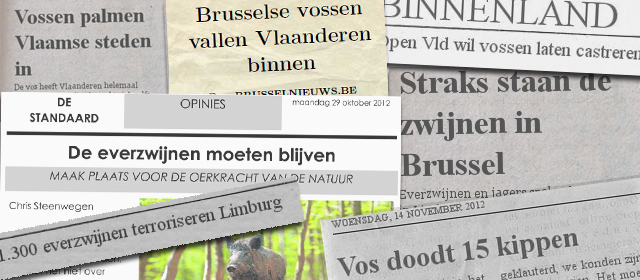Deep case studies
BESAFE carries out 12 single case studies addressing different issues areas related to biodiversity protection. This set of deep case studies covers different member states and geographical regions as well as various governance scales, stakeholder groups and their interaction. Overall, the case studies comprehensively explore the argumentation processes in the biodiversity-related policy making and provide knowledge on the transferability of arguments between the major governance levels.
Comparative case studies
Apart from the twelve deep case studies, BESAFE partners will conduct two comparative studies. The main idea behind these studies is to be able to compare different EU Member States with respect to particular WP 3 and WP 4 research questions. Comparative study “EU Biodiversity Strategy 2020 – national implementation” thus addresses the main questions of WP 3, while the study “Perceptions of biodiversity, ecosystem services and values at the national level” is concerned with WP 4 inquiry.
Public controversies surrounding the return of red fox and
wild boar to Flanders, Belgium

Introduction
The red fox and the wild boar have made a spectacular comeback in Flanders. Whereas these species have been extirpated for many decades – fox from large parts of Flanders and wild boar entirely - they now repopulate themselves throughout the Region. In the case of the fox, this process was most intensive in the 1990s. The expansion of boar populations is a very recent phenomenon.
The unexpected return and rapid spread of these animals gave rise to serious controversies and heated debates. All of this offers a good opportunity for critical analysis of different lines of argumentation, knowledge bases and styles of interaction. The on-going dispute also ties in with broader biodiversity issues, such as the relevance of wild animals in an urbanised region and our co-existence with them.
Brief description of the policy problem
While some groups do welcome these newcomers as a victory for biodiversity, others are less enthusiastic about them. On the one hand, many experience trouble and frustration: damage to crops, pastures and lawns, chickens and other livestock attacks, declines in small game, fear for traffic accidents, spread of diseases, and so on. On the other hand, government and other institutions find themselves unprepared and under pressure to tackle these problems.
Location
Flanders
Governance level(s) involved
Both foxes and wild boars are a lively topic of discussion at every level of governance. Conflicts of interest and truth telling are of significant concern. Responsibilities for damage and ways to keep the growing populations under control are important issues being discussed currently at different levels.
Stages in the policy cycle
All stages of the policy cycle can be found, but they do not always follow a neat sequence in actual policy processes and apparently some stages are even skipped. This might be due, in part, to political pressure and the perceived urgency of the situation. In response to the alleged threat of foxes to livestock, ministerial decisions on legislation were recently made but the new rules are still heavily contested. Concerning wild boars a pilot project is running to test possible management interventions and explore opportunities for participatory decision-making.
Main stakeholders involved
Apart from politics and public administrations, various groups and associations in civil society are involved in the controversies: farmers, hunters, nature activists, defenders of animal rights, residents, and others. Furthermore, observations and opinions of scientists play a prominent role in the debate. Opinions about the topics being discussed regularly appear in the media.
Partner responsible
Research Institute for Nature and Forest (INBO)
Contact person
Ann Van Herzele (Ann.VANHERZELE [at] INBO.BE)